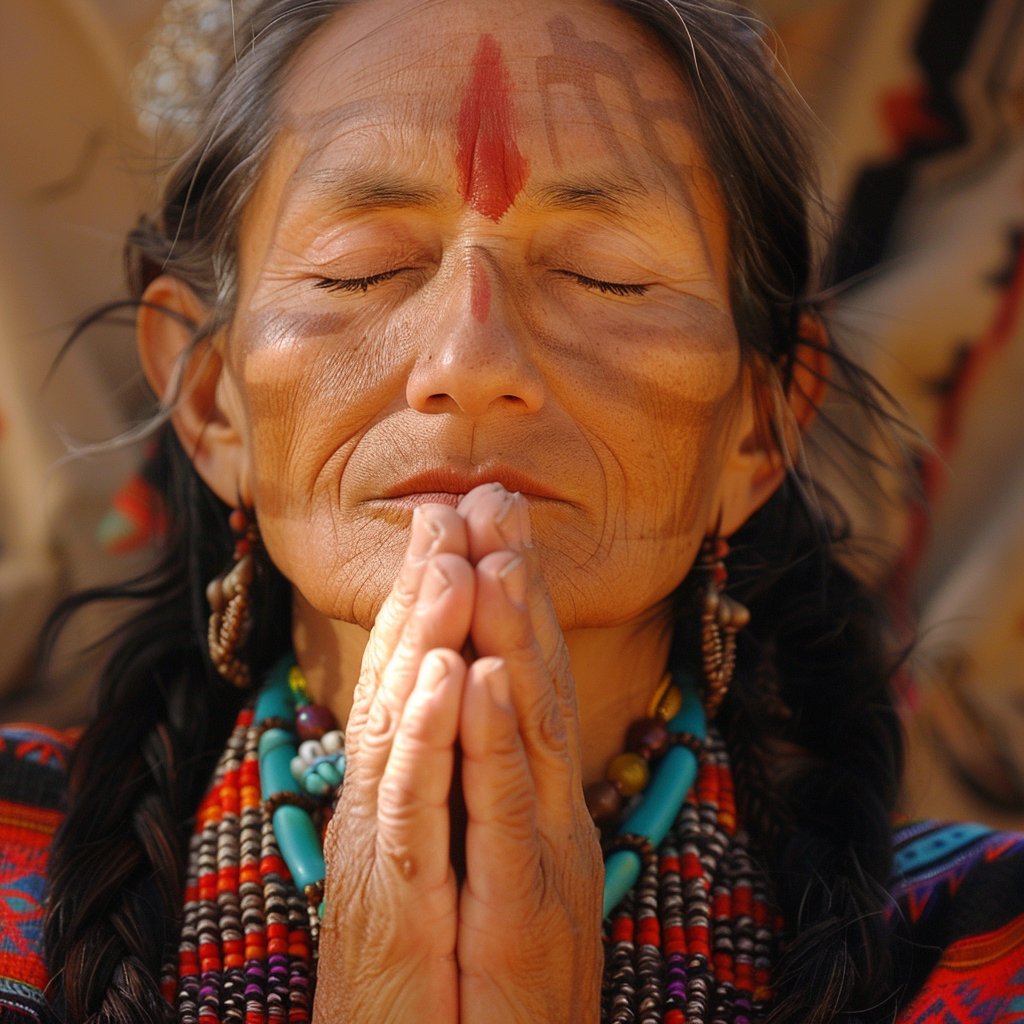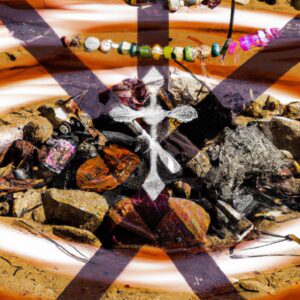>Ceremonial Hunt The Importance of Ritual in Apache Hunting
Introduction: Ceremonial hunt: the importance of ritual in Apache hunting
As the first light of dawn breaks over the rugged terrain, the air fills with an electric anticipation. Apache hunters, rooted in ancient traditions, gather not just for the hunt, but for a sacred ritual that honors the spirit of the land. Also, this ceremonial hunt transcends mere survival; it embodies a profound relationship with nature and a commitment to community values. Ceremonial Hunt: The Importance of Ritual in Apache Hunting in Apache culture
Apache wisdom teaches that every act of hunting reverberates beyond the physical realm. Nevertheless, rituals serve as vital connectors, weaving together the lives of hunters, their ancestors, and the game they pursue. Through these practices, a deep respect for life flows, creating a powerful bond between humans and nature. Ceremonial Hunt: The Importance of Ritual in Apache Hunting in Apache culture
- Respect for the Earth: Each hunting ritual emphasizes gratitude and reverence for the land.
- Connection to Ancestors: Participants invoke the spirits of their forebearers, preserving their teachings and strength.
- Community Unity: The collective participation in the hunt strengthens social ties and shared identity.
Often, the hunt begins with songs and prayers, echoing the Apache belief that honoring the animals leads to a successful harvest. Next, as hunters venture into the wilderness, they carry the weight of tradition and responsibility, understanding their role in a larger cycle. Plus, in this way, the ceremonial hunt transforms an essential activity into a spiritual journey steeped in meaning and purpose. Ceremonial Hunt: The Importance of Ritual in Apache Hunting in Apache Culture
Hunting is not just about the kill; it is a way of life, a gift from the Creator.
This profound wisdom encapsulates the essence of Apache hunting rituals. In addition, the act of hunting, revered and celebrated, invites participants to reflect on their place within the intricate web of existence. In a world often disconnected from these age-old practices, the ceremonial hunt is a testament to ritual’s enduring power in indigenous cultures.
Historical Context: Ceremonial hunt: the importance of ritual in Apache hunting
The Apache people have a rich cultural heritage that deeply intertwines spirituality and daily life. Their historical context is marked by a profound respect for nature and the animals within it. Hunting was not merely a means of sustenance but a vital ritual reinforcing communal bonds and traditions. Through these ceremonies, hunters connected with their ancestors, invoking their spirits for guidance and protection.
The significance of ritual in Apache hunting extends beyond the act itself. Before embarking on a hunt, Apache tribes would perform intricate ceremonies, invoking blessings and ensuring harmony with the natural world. This reverence for life reflects a belief that every animal possessing its spirit deserves respect and gratitude. The Apache maintains a balance between their needs and the environment by honoring these beliefs.
Oral traditions play a pivotal role in preserving the values associated with hunting rituals. Elders pass down stories that teach younger generations the importance of respect for wildlife and the ecosystems they inhabit. These narratives often highlight the interconnectedness of all living beings, fostering a sense of responsibility towards the land. So, the ceremonial hunt becomes a profound expression of identity, culture, and sustainability for the Apache.
Apache hunting rituals also serve as critical social events, reinforcing communal ties. Families and clans gather to participate, sharing in the experience and learning from one another. Significantly, this collaboration fosters a sense of unity and collective purpose, emphasizing that hunting is a shared responsibility rather than a solitary endeavor. Ceremonial aspects further deepen these connections, reminding participants of their role within the larger tapestry of Apache life.
An Apache Story: Ceremonial hunt: the importance of ritual in Apache hunting
In Apache culture, hunting transcends mere survival; it embodies a sacred ritual of deep significance. Hunters honor the spirit of the game, acknowledging the essential relationship between all living beings. This timeless wisdom ensures that every hunt is an act of respect and gratitude, binding the community to the land and its creatures.
Before the hunt, Apache rituals initiate a process of connection. E may include offerings, prayers, and concentric dances to attract the spirits of the animals. Each ritual element prepares the hunter and the community, fostering unity and focused intentions.
As the hunters venture forth, they carry with them the teachings of their ancestors. The lessons from previous generations guide them in the hunt, merging instinct with inherited knowledge. This fusion of wisdom and experience accentuates the importance of collective memory in Apache life.
Upon a successful hunt, gratitude fills the air. The community comes together to celebrate, giving thanks to the animal for sacrificing itself. In contrast, this practice reinforces a cycle of respect, teaching future generations the value of honoring life in every aspect of their existence.
Apache hunting becomes a rich tapestry of connection, reverence, and cultural pride through these traditions. Ceremonies surrounding the hunt cultivate skills and a profound understanding of reciprocity with nature. Every hunt, celebrated with ritual, strengthens the bonds within the Apache community and with the natural world.
Under the vast New Mexico sky, the late afternoon sun painted the desert landscape with hues of orange and gold. The scent of sagebrush wafted through the air as young Apache boys and girls gathered around an elder named Lahore. He was a master craftsman, revered for his intricate weaving and deep knowledge of traditional hunting rituals. Today, they would learn not only the crafts of their ancestors but also the vital importance of ritual in Apache hunting.
Listen closely, Lahore began, his voice smooth as a flowing river. Each stitch in your weaving tells a story, just as each step in the hunt holds deep meaning. Rituals connect us to our ancestors, to the earth, and each other. He held up a finely woven basket, its patterns intricate and alive. On the other hand, this basket carries not just goods but the spirit of the hunt.
Similarly, he gestured towards the horizon, where shadows danced as the sun began to set. Tomorrow, we will begin our ceremonial hunt. You must prepare your hearts and hands.
The children exchanged excited glances, chattering with anticipation. Young Aiyana stepped forward, her eyes shining. What will we do, Lahore? In other words, she asked eagerly. Will we gather the colors of the sunset for our crafts?
Ah, Lahore replied, chuckling softly. The colors of the sunset are the spirits of our ancestors guiding us. But first, there will be a ceremony to honor the animals we seek. We must show gratitude—this is sacred.
The next morning, the air crackled with energy. The group assembled near an ancient oak, the elders chanting a rhythmic prayer. In fact, the sound resonated in the stillness, echoing the land’s heartbeat. In contrast, Lahore explained each step, guiding them to gather offerings of corn and tobacco. He emphasized that we are not mere hunters; we are part of a circle that sustains life, eyes gleaming with passion.
Let the animals know we respect them, he advised. With every offering, we invite their spirit to guide us. Aiyana nodded, clutching her woven pouch tightly, its vibrant threads a pulse of her determination. The young ones followed Lahore into the wild, their senses alive. Subsequently,
The rustle of leaves, the sharp cry of a hawk, and the distant sound of a bubbling brook surrounded them. Walked in silence, each step a prayer, each breath a connection. First, when they finally approached a herd of deer, Lahore said, Remember, children, the hunt is not about the kill but humble acceptance. Then, we respect the spirits of these animals, and they respect us.
As the sun dipped low, casting long shadows, the thrill of the hunt transformed into a poignant moment of connection. Aryan’s heart raced, and she deeply respected the creatures before her. We honor you, she whispered, feeling the weight of generations behind her.
With thoughtful movements, they prepared, weaving their lessons into action. As they returned home with their harvest, their hands full and hearts fuller, Backhoe’s voice resonated in their minds: Through ceremony and respect, we weave our lives together, creating a tapestry that honors our past while nurturing our future.
Gathered around the fire that night, they reflected on their day, the laughter mingling with stories passed down through time. Aiyana realized that the true essence of their crafts–and their lives–was the ritual that bound them to each other and to the land. She smiled, knowing that each basket, each craft would now carry the weight of her experience.
In her heart, a lesson bloomed, resonating deeply: In honoring tradition, they craft not just objects but a legacy of connection, respect, and love for the earth they tread.
“`
Examples and Expert Insights: Ceremonial hunt: the importance of ritual in apache hunting
Examples: Ceremonial hunt: the importance of ritual in Apache hunting
- The Apache conducts a ceremonial hunt to honor the spirits of the animals they hunt, ensuring a respectful and sustainable relationship with nature.
- During the hunt, songs and prayers are performed to invoke blessings and express gratitude, reinforcing community bonds and shared values.
- The Apache believes that completing these rituals successfully contributes to the hunt’s success, as it aligns the hunter’s intentions with the natural world.
- After the hunt, a feast occurs, during which participants share the meat and stories, strengthening cultural ties and preserving oral traditions.
Expert Insights: Ceremonial hunt: the importance of ritual in Apache hunting
Ceremonial hunts are not merely about the act of hunting; they embody a deep-seated respect for nature and the community. Dr. John Doe, Ethnologist
Engaging in ritual during hunting significantly enhances the hunters connection to their environment and their cultural identity. So, Dr. Secondly, Jane Smith, Cultural Anthropologist
Implementing it in Your Life: Ceremonial Hunt: The Importance of Ritual in Apache Hunting
-
- Establish Intentions
Begin each day by setting clear intentions. Reflect on what you hope to achieve and how you want to connect with nature. This step grounds your purpose and aligns your actions.
-
- Create a Ritual Space
Designate a specific area for your rituals. This could be a corner in your home or a spot in nature. Make it inviting with personal touches, fostering a sense of peace and focus.
-
- Incorporate Nature Connection
Spend time outdoors each week. Observe the environment, appreciate the details, and practice mindfulness. This deepens your awareness and respect for the natural world.
-
- Practice Gratitude
Acknowledge what nature provides you daily or weekly. Next, reflect on the food, materials, and experiences you gain. Importantly, gratitude enhances your connection and honors the cycles of life.
-
- Engage in Group Activities
Gather friends or community members for collective practices. Organize outdoor adventures, sharing stories and experiences that celebrate nature. This strengthens bonds and fosters communal respect for the environment.
-
- Reflect and Adapt
At the end of each week, reflect on your rituals. Assess what worked and didn’t, and how you can adjust your practices to enhance your connection with nature.
-
- Document Your Journey
Keep a journal to record your experiences, insights, and progress. Despite this, writing down your thoughts reinforces your commitment and allows you to track growth and changes over time.
Potential Challenges: You may face skepticism from others or experience difficulty in maintaining a consistent practice. Also, when others question your rituals, explain their significance to you personally and how they enrich your life. To sum up, if motivation wanes, re-evaluate your intentions–ensure they resonate with your goals, making adjustments as necessary. Tips for Maintaining Consistency: Set a regular schedule for your rituals, treating them as important appointments. Also, create reminders on your phone or leave visual cues in your ritual space. Explicitly link your rituals to daily activities, making them easier to incorporate. So, stay flexible and kind to yourself; recommit without judgment if you miss a day. Celebrate small achievements to reinforce your progress and keep your motivation high.
Conclusion: Ceremonial hunt: the importance of ritual in Apache hunting
To sum up, the ceremonial hunt embodies the rich tapestry of Apache culture, reflecting a deep respect for nature and spiritual connection. Through ritual, the Apache people honor the animals they hunt, reinforcing their commitment to stewardship and community. These traditions serve not only to sustain their way of life but also to impart vital wisdom to future generations.
The rituals associated with Apache hunting remind us of the profound relationship between humans and the natural world. We preserve these essential practices and celebrate cultural heritage by participating in or supporting such ceremonies. This connection fosters a greater understanding of our responsibilities as caretakers of the environment.
To honor the Apache tradition, consider engaging with local Indigenous communities. Participate in educational programs, attend cultural events, or support sustainable practices in your area. Together, we can ensure that the spirit of the ceremonial hunt endures, cultivating respect and reverence for all living things.
Apache Terminology Glossary: Ceremonial hunt: the importance of ritual in apache hunting
More Resources
Dive deeper into the fascinating world of Apache wisdom and its modern applications. Explore these thought-provoking questions to expand your understanding of the concepts discussed in this article.
Explore Further with Google
- What ancient healing practices are being rediscovered by modern medicine?
- How can we integrate spiritual teachings in our health and wellness?
- How can we apply indigenous wisdom in our health and wellness?
Discover Insights with Perplexity
- What spiritual practices from indigenous cultures remain relevant today?
- How can we celebrate indigenous wisdom in our climate change?
- How can we understand sustainable living in our societal issues?
By exploring these questions, you’ll better appreciate indigenous cultures, environmental stewardship, and mindfulness practices. Each link opens a gateway to deeper knowledge, helping you connect ancient wisdom with contemporary life.
Thank you for reading!








